Earth Sciences
Atmospheric 'teleconnections' sustain warm blobs in the northeast Pacific Ocean
The past 10 years have seen a series of "warm blobs" in the northeast Pacific Ocean. These marine heat waves do widespread damage to ecosystems and marine life in the area, but the mechanisms by which they develop and are ...
17 hours ago
0
172
Astronomy
New observatory in Chile—the highest in the world—aims to reveal origins of planets, galaxies and more
How do planets form? How do galaxies evolve? And ultimately, how did the universe itself begin? A unique astronomical observatory that researchers hope will unravel some of the biggest mysteries out there marks its opening ...
8 hours ago
0
88

Citizen scientists help discover record-breaking exoplanet in binary star system
A team of astronomers and citizen scientists has discovered a planet in the habitable zone of an unusual star system, including two stars and potentially another exoplanet.
A team of astronomers and citizen scientists has discovered a planet in the habitable zone of an unusual star system, including two stars and potentially ...
Astronomy
16 hours ago
0
153

Researchers explore an old galactic open cluster
Using data from ESA's Gaia satellite, astronomers from Turkey and India have investigated NGC 188—an old open cluster in the Milky Way. Results of the study, published April 19 on ...
Using data from ESA's Gaia satellite, astronomers from Turkey and India have investigated NGC 188—an old open cluster in the Milky Way. Results of the ...

Mimicry allows lesser necklaced laughingthrush birds to benefit from living among larger related species
A team of ecologists, environmentalists and biologists from several institutions in China, working with a colleague from Nepal and another in the U.S., has found an instance of mimicry ...
A team of ecologists, environmentalists and biologists from several institutions in China, working with a colleague from Nepal and another in the U.S., ...

Alpacas found to be the only mammal to directly inseminate the uterus
A pair of biologists from Mount Holyoke College, working with a colleague from North American Camelid Studies Program, the Nunoa Project, has found that the male alpaca thrusts his penis all the way into the uterus of the ...
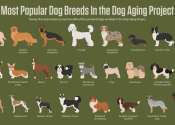
Study dispels myth that purebred dogs are more prone to health problems
It's a common belief that purebred dogs are more prone to disease than mixed-breed dogs, but a new study led by researchers at the Texas A&M School of Veterinary Medicine and Biomedical Sciences (VMBS) has busted this myth.
Plants & Animals
15 hours ago
0
131
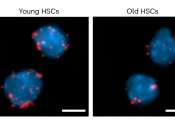
Study uncovers the secret of long-lived stem cells
Nothing lives forever, but compared to other cells in the body, hematopoietic stem cells (HSCs) are remarkably long-lived. HSCs are blood-forming cells—they give rise to rapidly dividing progenitor cells, which in turn ...
Cell & Microbiology
12 hours ago
0
31
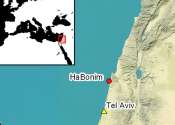
Scientists show that ancient village adapted to drought, rising seas
Around 6,200 BCE, the climate changed. Global temperatures dropped, sea levels rose and the southern Levant, including modern-day Israel, the Palestinian territories, Jordan, Lebanon, southern Syria and the Sinai desert, ...
Archaeology
13 hours ago
0
181

Exploring the origins of excitatory and inhibitory neuronal tuning in the postsubiculum
Brain cells can be broadly divided into two categories: inhibitory and excitatory neurons. Excitatory neurons are cells that support the generation of electrical impulses in postsynaptic neurons, thus prompting the activation ...
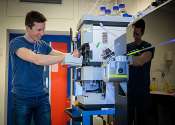
Patients with rheumatoid arthritis have unique and complex autoantibody patterns, study reveals
Patients with rheumatoid arthritis (RA) all have a unique and diverse set of antibodies that are involved in the development of the disease. Researchers at Utrecht University unveiled the complexity of these antibodies using ...
Arthritis & Rheumatism
4 hours ago
0
34

Popular teenagers sleep less than their peers, study finds
Due to a later melatonin onset and increased alertness in the evening, teenagers often find it hard to fall asleep at a time that would allow them to clock up the recommended eight to ten hours of sleep each night.
Pediatrics
4 hours ago
0
3
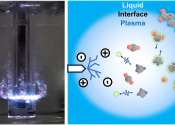
Methane emissions from landfill could be turned into sustainable jet fuel with plasma-driven process
In a world first, University of Sydney researchers have developed a chemical process using plasma that could create sustainable jet fuel from methane gas emitted from landfills, potentially creating a low-carbon aviation ...
Energy & Green Tech
12 hours ago
0
51

The Future is Interdisciplinary
Find out how ACS can accelerate your research to keep up with the discoveries that are pushing us into science’s next frontier
 Medical Xpress
Medical Xpress

Study: Better win ratio for NBA western time zone area (PDT) home teams when playing EDT teams, compared to vice versa

Survey finds young adults more likely to believe myths about sun protection and skin cancer prevention

Treatment-related pain may be 'socially contagious'

Evidence-based integrated approaches provide new opportunities to improve complex pain management

Study introduces improved way to grow cells that give rise to kidney's filtration system

New drug candidate reverses obesity in mice

Scientists find cancer-like features in atherosclerosis, spurring opportunity for new treatment approaches

New regulator of eating behavior identified
 Tech Xplore
Tech Xplore

A new framework to improve high computing performance

Report finds e-bike incentives are worth the investment

New sodium-ion battery tech boosts green energy storage affordability

Vienna conference urges regulation of AI weapons

ChatGPT faces Austria complaint over 'uncorrectable errors'
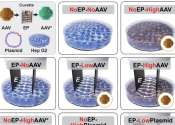
An electrifying discovery may help doctors deliver more effective gene therapies
In an effort to improve delivery of costly medical treatments, a team of researchers in electrical engineering at the University of Wisconsin–Madison has developed a stimulating method that could make the human body more ...
Medical research
12 hours ago
0
12
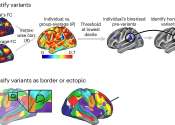
Neuroscientists discover two specific brain differences linked to how brains respond during tasks
A new study by neuroscientists at Florida State University has revealed brain differences that may explain why humans demonstrate a variety of cognitive abilities and behaviors.
Psychology & Psychiatry
12 hours ago
0
6

AI speech analysis may aid in assessing and preventing potential suicides, says researcher
Speech is critical to detecting suicidal ideation and a key to understanding the mental and emotional state of people experiencing it. Suicide hotline counselors are trained to quickly analyze speech variation to better help ...
Computer Sciences
12 hours ago
0
24
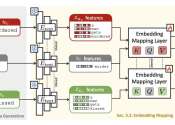
A framework to enhance the safety of text-to-image generation networks
The emergence of machine learning algorithms that can generate texts and images following human users' instructions has opened new possibilities for the low-cost creation of specific content. A class of these algorithms that ...
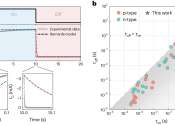
Organic electrochemical transistors: Scientists solve chemical mystery at the interface of biology and technology
Researchers who want to bridge the divide between biology and technology spend a lot of time thinking about translating between the two different "languages" of those realms.
Polymers
14 hours ago
0
55

How polyps of the moon jellyfish repel viral attacks on their microbiome
Bacteriophages, or phages for short, are viruses that infect bacteria and kill them through a lysis process. Phages can kill bacteria on or in a multicellular host organism, such as the polyp of the moon jellyfish. Phages ...
Ecology
13 hours ago
0
37
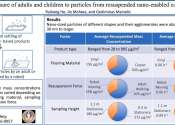
Activity in a room stirs up nanoparticles left over from consumer sprays, study shows
Common household products containing nanoparticles—grains of engineered material so miniscule they are invisible to the eye—could be contributing to a new form of indoor air pollution, according to a Rutgers University ...
Environment
14 hours ago
0
53

New research reports on buckling: When structures suddenly collapse
Last summer, when the Titan submersible suffered a catastrophic implosion on its way to take passengers to see the Titanic shipwreck, it was a dramatic example of the failure of a thin-walled structure. Those structures, ...
Engineering
15 hours ago
0
22
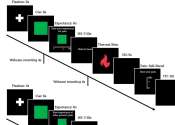
Treatment-related pain may be 'socially contagious'
An individual's experience of pain from medical treatment can be heightened by witnessing other people's responses to the same treatment, with this negative experience subsequently spreading to others, scientists have discovered.
Psychology & Psychiatry
14 hours ago
0
31

Archaeology team discovers a 7,000-year-old settlement in Serbia
Together with cooperation partners from the Museum of Vojvodina in Novi Sad (Serbia), the National Museum Zrenjanin and the National Museum Pančevo, a team from the ROOTS Cluster of Excellence has discovered a previously ...
Archaeology
16 hours ago
0
131

US Republicans vote to remove wolf protections
The Republican-majority US House of Representatives on Tuesday passed a bill that would remove endangered species protections for the gray wolf across much of the country, sparking outrage among conservationists.

April temperatures in Bangladesh hottest on record
Bangladesh's weather bureau said Wednesday that last month was the hottest April on record, with the South Asian nation and much of the region still enduring a suffocating heat wave.

Study says El Nino, not climate change, was key driver of low rainfall that snarled Panama Canal
The climate phenomenon known as El Niño—and not climate change—was a key driver in low rainfall that disrupted shipping at the Panama Canal last year, scientists said Wednesday.

New research captures 18 years of US anti-bullying legislation
Between 1999 and 2017, every state has passed a law addressing bullying, and 90% of those states amended or updated their laws, according to research that analyzes the most comprehensive legal data on anti-bullying laws to ...

The academic sleuth facing death threats and ingratitude
Lonni Besançon devotes evenings and weekends to rarely appreciated sanitation work. By examining scientific articles after they are published and exposing shortcomings, he has made himself an enemy of both researchers and ...

Climate change lengthens, intensifies the blooming of holm oak and other Quercus species: Study
A study by the University of Cordoba analyzes trends in the blooming patterns of the genus Quercus in Andalusia, using pollen concentrations in the air and confirming their effects on allergies

Low-intensity grazing is locally better for biodiversity but challenging for land users, study shows
A team of researchers led by the German Centre for Integrative Biodiversity Research (iDiv), Leipzig University (UL), and the Helmholtz Centre for Environmental Research (UFZ) has investigated the motivation and potential ...

Discovery of uranium-contaminated soil purification material without secondary environmental pollution
Nuclear energy has long been regarded as a next-generation energy source, and major countries around the world are competing to secure cutting-edge technologies by leveraging the high economic efficiency and sustainability ...

Invasive termites dining in our homes will soon be a reality in most cities, says research
With climate change continuing its relentless march, the world faces not only rising temperatures and extreme weather but also an insidious threat to our homes: invasive termites. And the bill could be steep; invasive termites ...

Should online educational platforms offer courses following a schedule or release them on demand?
Researchers from Carnegie Mellon University and University of Pennsylvania have published a new Journal of Marketing study that examines online educational platforms and the question of whether they should release content ...

Big data reveals true climate impact of worldwide air travel
For the first time ever, researchers have harnessed the power of big data to calculate the per-country greenhouse gas emissions from aviation for 197 countries covered by an international treaty on climate change.

It may be time to eliminate the best-before date on food packaging, say smart packaging researchers
The inventors of a suite of tests that enable food packages to signal whether their contents are contaminated are working to bring producers and regulators together to get their inventions into commercial products, with the ...

Study sheds new light on how Scotland's beavers interact with the environment
A study by the University of Stirling has shed new light on how beavers reintroduced to Scotland indirectly interact with deer—and the implications for the woodlands they share.

Immunizing consumers against bad news can protect brands, says study
Abercrombie & Fitch. Balenciaga. Starbucks. In recent years, these brands and many others have faced extreme public backlash due to insensitive comments from executives, changes to loyalty programs, controversial advertising ...

Research reveals overlooked factor driving China's real estate crisis
The default of Evergrande, one of China's largest developers, set off a chain of defaults among developers, triggering the ongoing property market crisis in China.

An AI model to reduce uncertainty in evapotranspiration prediction
When scientists look at the Earth's available water for ecosystem services, they don't just look at precipitation. They must also account for water moving from the ground to the atmosphere, a process known as evapotranspiration ...

Study: Racial bias is no 'false alarm' in policing
Black drivers are more frequently searched during traffic stops without finding contraband than white drivers, according to a University of Michigan study.

A rare and little-known group of monkeys could help save Africa's tropical forests
Conservationists and scientists from almost 20 institutions in the United States, Europe, and Africa, have concluded that immediate conservation efforts to protect red colobus monkey species could have cascading net positive ...

Study explores biology, impact, management and potential distribution of destructive longhorn beetle
A new study published in the Journal of Pest Science explores the biology, impact, management and potential distribution of the invasive, red-necked longhorn beetle (Aromia bungii) which has recently invaded Japan, Germany, ...

ALICE gets the green light for new subdetectors
Two detector upgrades of ALICE, the dedicated heavy-ion physics experiment at the Large Hadron Collider (LHC), have recently been approved for installation during the next long shutdown of the LHC, which will take place from ...






































































